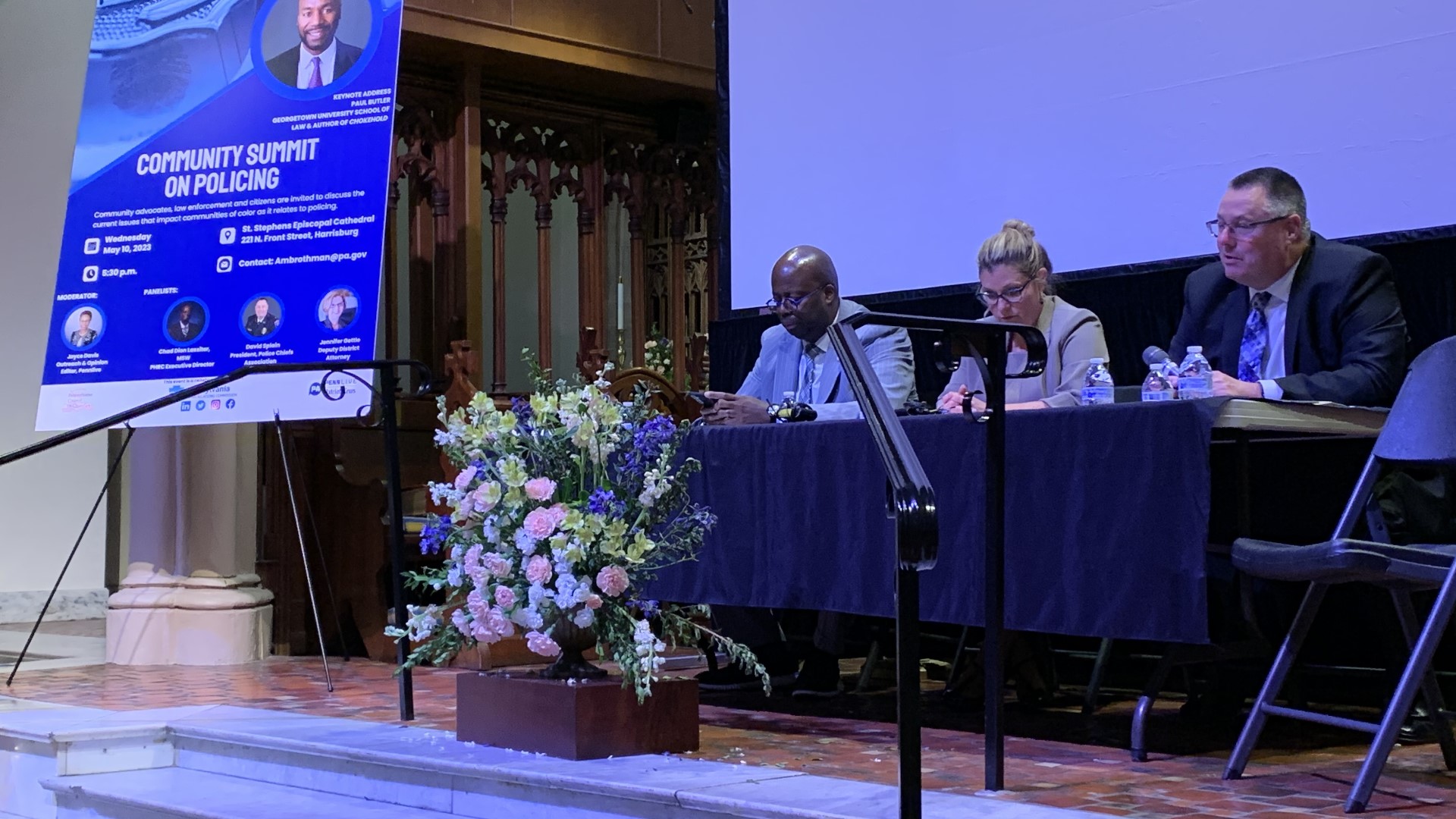HARRISBURG, Pa. — Harrisburg residents, advocates, and law enforcement officials came together at St. Stephens Episcopal Cathedral for a community summit on policing. People in attendance engaged with panel members about ways to address racial biases in the criminal justice system.
“We heard passion in this audience, passion from people on all sides," said Paul Butler, the keynote speaker of the summit.
Butler is a law professor at Georgetown University and the author of the 2017 book, "Chokehold: Policing Black Men." He used his experience as a former federal prosecutor to outline the effects of racial bias in policing and to argue for reforms to tackle the problem.
“Tonight, it’s about coming together to end what some people call, ‘the new Jim Crow,’" said Butler. "This tragic fact that there are more Black people in the criminal legal system today than there were slaves in 1850.”
Panelists for the summit included David Splain, the president of the Pennsylvania Chiefs of Police Association; Chad Dion Lassiter, the executive director of the Pennsylvania Human Relations Commission; and Jennifer Gettle, the deputy district attorney for Dauphin County.
"We are doing our best to help people and to make our community safer, but at the same time, we're hearing from citizens who have other concerns about bias," said Gettle. “I think it was a good opportunity to hear what the community is feeling in this circumstance.”
She said Dauphin County has worked to implement diversionary courts to keep people out of prison, as well as worked to improve transparency in policing.
“There are some calls that the police get that are really not police calls; they are calls for mental health services, and mental health professionals need to be dealing with that rather than the police," said Gettle. "We also have different programs that look at transparency, by overlooking police actions."
She adds that community engagement will help law enforcement officials assess the reforms that are needed to address racial bias.
“I think it’s good to have this kind of community outreach and community interaction so we can make it a better place," Gettle told FOX43.
“We’re not going to agree on everything, but we’re going to have the conversation," said Butler. "That’s how progress happens; that’s how change happens.”

